Vienna, nest of spies: Why Austria is still centre for espionage
- Published
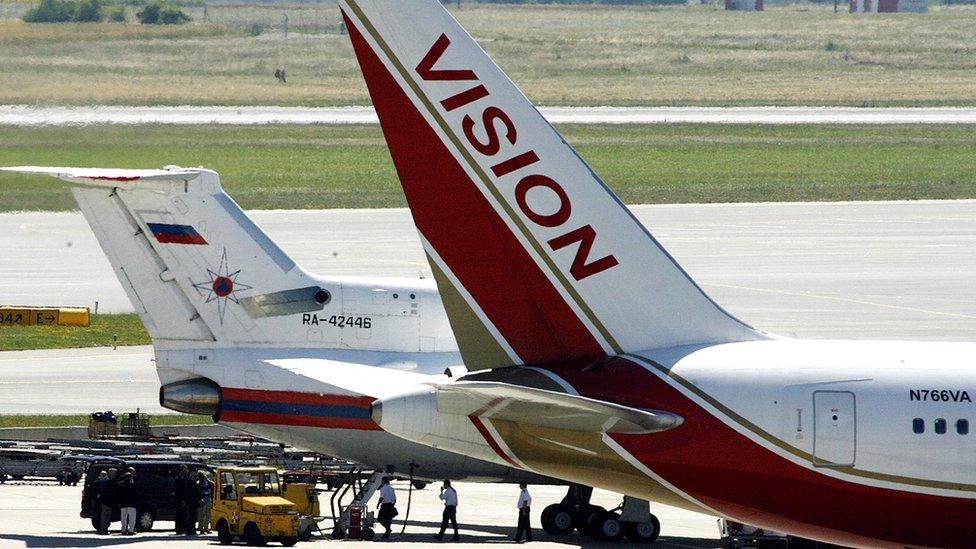
Among the spies swapped on 9 July 2010 was Sergei Skripal, the double agent poisoned in Salisbury this year
I watched from a distance as a chartered maroon and white plane from New York, carrying 10 Russian spies, parked on the runway at Vienna airport next to a Russian plane with four more agents on board.
It was July 2010 and I was reporting on the biggest spy swap between Russia and the United States since the Cold War.
It came as little surprise that Vienna had been chosen as the site for the exchange.
The city's long tradition as a hotbed of international espionage continues up to the present day.
The latest case has come as a particular embarrassment to Austria.
A retired Austrian colonel is being investigated by prosecutors on allegations that he had been spying for Russia since the 1990s.
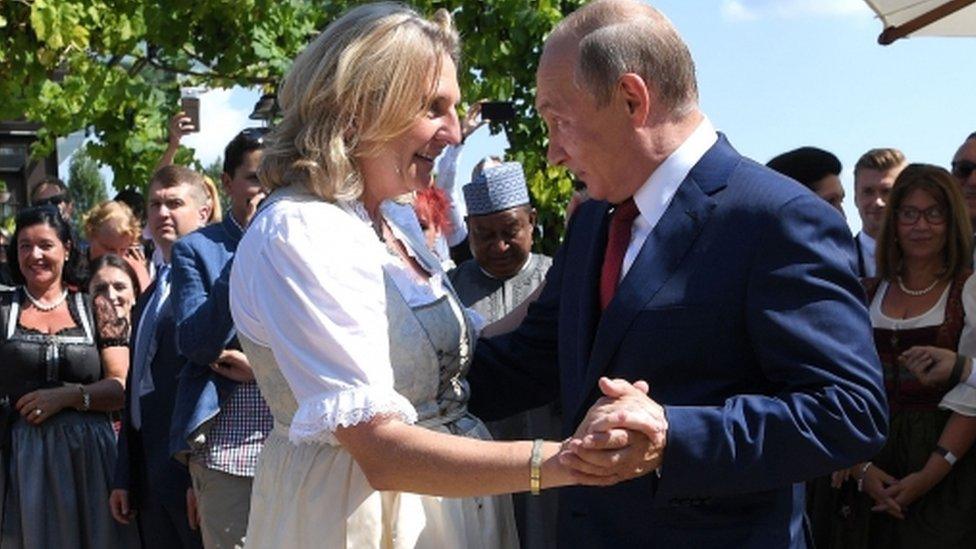
President Putin was a guest of honour at the Austrian foreign minister's wedding - but many Austrians were unimpressed
Austria is seen as one of Russia's few friends in the EU. Only months ago, Russian President Vladimir Putin flew in as a surprise guest for the wedding of Foreign Minister Karin Kneissl.
Among the spies exchanged on the tarmac at Vienna airport in 2010 was Sergei Skripal, poisoned in Salisbury this year.
A Russian military intelligence officer, he had been working as a British double agent.
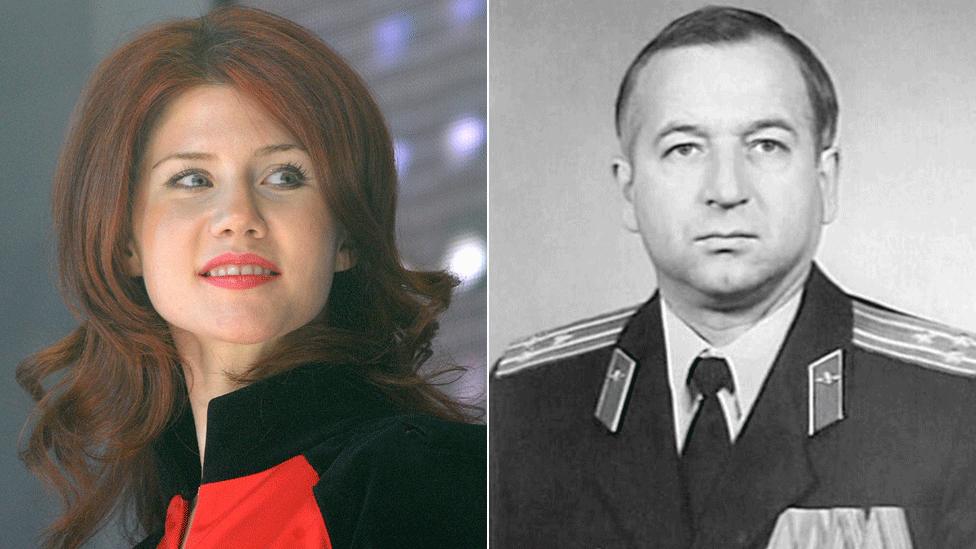
Anna Chapman was among 10 Russian spies whom the US swapped with Russia for four agents including Col Sergei Skripal
Another was Anna Chapman, a glamorous red-headed Russian agent who had been deported from the United States.
Vienna's reputation as a centre for spies is partly geography.
Austria and the 'business' of spying
Situated close to the Iron Curtain, neutral Austria was a convenient listening post during the Communist era, according to Siegfried Beer, historian and founder of the Austrian Center for Intelligence, Propaganda and Security Studies.
"Being based in Vienna during the Cold War, meant intelligence services could organise all kinds of things into Yugoslavia, into Hungary, into Czechoslovakia, even as far as Poland," he says.
"The Austrian government was eager to remain neutral. So it developed an atmosphere in which everybody was pretty cosy and profited from each other. It was a business, you know.
"Espionage was a business. It still is. It brings a lot of people with a lot of money and a lot of support into the country."
The classic Cold War movie, The Third Man, shows how occupied post-war Vienna was divided into four Allied zones, controlled by the British, the Americans, the French and the Soviets.
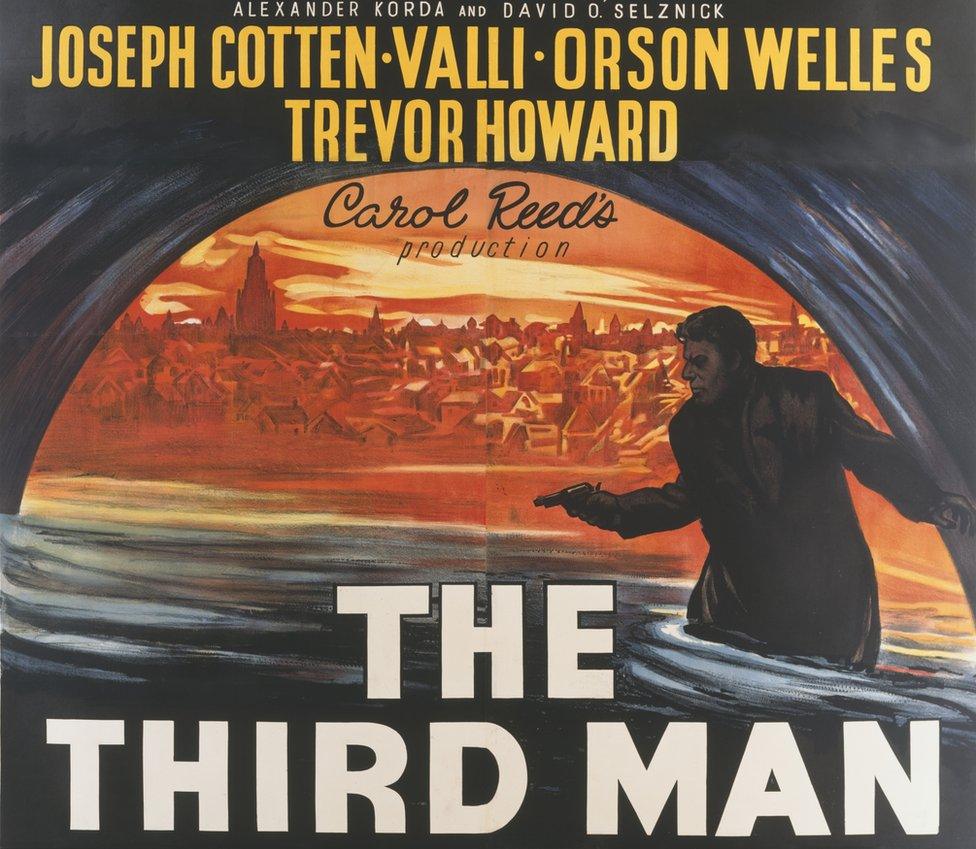
Although the story of The Third Man is more focused on black market racketeering than espionage, Siegfried Beer says it was inspired by an Austrian journalist, Peter Smolka, who worked for British intelligence and who was also a Soviet mole.
'Hundreds of spies'
Today the Iron Curtain has gone, but the spies remain.
These days, Vienna is home to one of the headquarters of the United Nations, and the European security body, the Organization for Security and Co-operation in Europe (OSCE).
That means that many countries have not just an embassy, but up to two more diplomatic missions to the international organisations. These provide both diplomatic immunity and cover for spies.
The annual report of the Austrian Federal Office for the Protection of the Constitution and Counterterrorism (BVT) says Austria is a "favoured area of operations" for foreign spies and the number of intelligence agents remains "high".
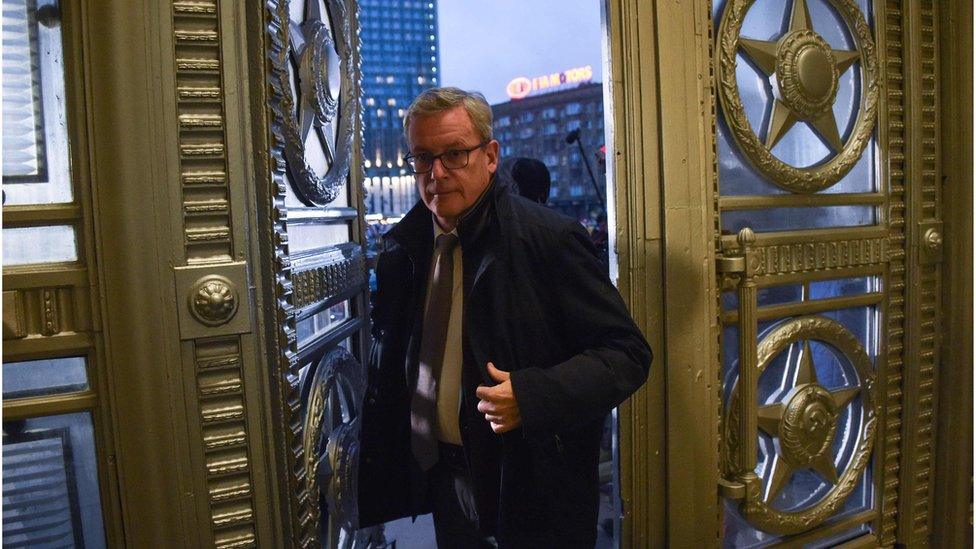
Austrian ambassador to Moscow Johannes Aigner was hauled in by Russia's foreign ministry last week when the spying claims emerged
When the report was issued earlier this year, the head of the BVT, Peter Gridling, would not be drawn on exact numbers of foreign agents operating here, but said it was "a community of hundreds of people".
However, he also noted that there is now "a greater density of so-called intelligence services from outside the EU in Brussels" than in Vienna.
'I was courted by Russia and MI6'
Gerhard Mangott, Professor of International Relations at the University of Innsbruck, says it is common knowledge that these agents often try to recruit Austrian informants.
He was surprised that the Austrian government decided to go public with the recent allegations against the retired colonel, particularly given Vienna's close ties with Russia.
"The Secret Services are very active in Austria on a bilateral basis, trying to win over informants from various institutions," he said.
Professor Mangott was himself courted by both the Russian and the British intelligence services.
"I was contacted by a Russian secret service person in the 1990s to work for the Russian side and I also have to say that MI6 contacted me in the 1990s to work as an informant."
"I'm sure that there are many more [Austrian} people out there who work for foreign secret services," he said. "The fact that this political spy was uncovered should be no surprise for the Austrian government."
Siegfried Beer agrees. "Politicians should know by now that espionage is an international business in which everybody is involved.
"Instead of blaming the Russians, the Austrians should have looked at their own set-up and asked how we could have had a spy in our ranks for 25 years."